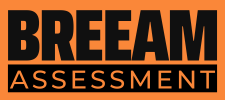BREEAM Waste Management in UK Businesses
In the quest for sustainable development, businesses in the United Kingdom are increasingly embracing frameworks like BREEAM (Building Research Establishment Environmental Assessment Method) to guide their environmental endeavors. At the heart of this framework lies a pivotal criterion—waste management—that holds immense significance in the journey toward sustainability. This blog aims to delve deeper into the importance of effective waste management practices within the BREEAM framework for UK-based businesses. By understanding and prioritizing waste management, businesses can not only enhance their environmental performance but also contribute to the creation of a greener and more sustainable future.
As sustainability continues to gain traction as a core business imperative, waste management emerges as a critical aspect of corporate responsibility. By adopting robust waste management strategies, businesses can mitigate environmental impacts, improve resource efficiency, and enhance their reputation as environmentally conscious entities. Let’s explore how effective waste management practices can help businesses achieve BREEAM certification and demonstrate their commitment to sustainability
Understanding BREEAM Waste Management
Within the BREEAM framework, waste management encompasses a broad spectrum of practices aimed at reducing, recycling, and responsibly disposing of waste generated throughout the building lifecycle. This includes strategies for waste minimization, proper storage and collection, and diversion of waste from landfill. Effective waste management is not only essential for achieving BREEAM certification but also for minimizing environmental impacts and promoting resource efficiency.
BREEAM waste management criteria are designed to evaluate the effectiveness of waste management practices and encourage sustainable approaches to waste reduction and recycling. By integrating waste management considerations into building projects from inception to completion, businesses can minimize waste generation, optimize resource use, and contribute to a more sustainable built environment.
Benefits of Effective Waste Management in BREEAM Assessments
The benefits of effective waste management in BREEAM assessments extend across environmental, economic, and social dimensions. Firstly, by reducing waste generation and implementing recycling programs, businesses can significantly lower their environmental footprint. This includes reducing greenhouse gas emissions associated with waste disposal, conserving natural resources, and minimizing pollution.
Moreover, effective waste management practices can yield substantial cost savings and resource efficiencies for businesses. By implementing waste minimization strategies and recycling programs, businesses can reduce waste disposal costs, minimize procurement expenses, and improve operational efficiency. Additionally, responsible waste management demonstrates a commitment to corporate social responsibility, enhancing brand reputation and fostering trust with stakeholders.
Key Waste Management Criteria in BREEAM
BREEAM waste management criteria encompass various aspects of waste management performance, including:
- Waste Minimization Strategies: This criterion evaluates the effectiveness of strategies for reducing waste generation throughout the building lifecycle. Examples include optimizing material use, minimizing packaging waste, and adopting lean construction techniques to reduce construction waste.
- Waste Storage and Collection: Proper waste storage and collection infrastructure are essential for facilitating recycling and responsible disposal. This criterion assesses the adequacy of waste storage facilities, including bin placement, signage, and access for waste collection vehicles, to ensure efficient waste management on-site.
- Diversion of Waste from Landfill: Diverting waste from landfill through recycling, reuse, and recovery programs is a key objective of BREEAM waste management criteria. This criterion evaluates the effectiveness of waste diversion strategies, including the use of certified waste contractors, tracking waste diversion rates, and promoting a circular economy approach to resource management.
Implementing Effective Waste Management Strategies
Businesses can implement various strategies to enhance waste management performance and achieve BREEAM certification:
- Collaborating with Waste Management Professionals: Engage with waste management experts to develop tailored waste management plans that meet BREEAM requirements and address the specific needs of the project. This may involve conducting waste audits, identifying waste streams, and implementing best practices for waste reduction and recycling.
- Engaging with Contractors and Suppliers: Work closely with contractors and suppliers to integrate waste management considerations into the design, procurement, and construction phases of building projects. This may include sourcing sustainable materials, minimizing packaging waste, and coordinating waste collection and disposal in accordance with BREEAM requirements.
- Educating and Training Staff: Provide comprehensive training and education programs to staff to raise awareness of waste management issues and promote best practices for waste reduction, recycling, and responsible disposal. This may include conducting workshops, distributing educational materials, and incentivizing staff participation in waste reduction initiatives.
Monitoring and Reporting on Waste Management Performance
Establishing robust monitoring and reporting mechanisms is essential for tracking waste management performance and ensuring compliance with BREEAM requirements:
- Monitoring Waste Generation: Implement systems to monitor waste generation throughout the building lifecycle, including construction, occupancy, and decommissioning phases. This may involve tracking the quantity and composition of waste generated, identifying opportunities for waste reduction, and benchmarking performance against targets.
- Reporting on Waste Management Performance: Develop procedures for reporting on waste management performance, including waste diversion rates, recycling rates, and progress towards waste reduction targets. This information can be used to demonstrate compliance with BREEAM requirements and identify areas for improvement.
Effective waste management is integral to achieving BREEAM certification and demonstrating a commitment to environmental sustainability and corporate social responsibility. By prioritizing waste management, businesses can minimize their environmental footprint, reduce operational costs, and enhance their reputation as responsible stewards of the environment. As businesses navigate the transition towards a more sustainable future, BREEAM provides a valuable framework for guiding sustainable practices and promoting a greener, more resilient built environment in the UK.
Are you ready to maximize sustainability and achieve BREEAM certification for your building projects?
Contact us today to learn more about how effective waste management can benefit your business and help you achieve your sustainability goals. Together, let’s build a brighter, more sustainable future for generations to come.


